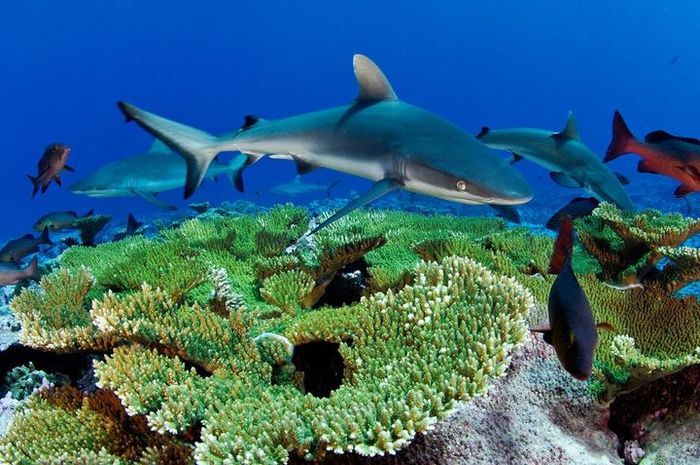Around the world, shark populations are experiencing serious problems. Mostly due to overfishing. A recent study showed their condition was worse than previously thought.
A comprehensive survey of 371 coral reefs in 58 countries - from the Central Pacific to the Bahamas - scientists found the fact that around 20 percent of these waters have no sharks.
In fact, sharks are important top predators because they help keep fish populations healthy by eating sick fish and preventing predators from exploding, according to the National Geographic website.
Some of the reefs with the thinnest number of sharks were found to be close to human populations. Like Qatar, the Dominican Republic, Colombia, Sri Lanka, and Guam.
Two-thirds of the world's 500 shark species are threatened by overfishing, often to meet demand for meat and fins.
Meanwhile, net waste and fishing equipment that unintentionally ensnare sharks also influence in reducing their population.
Even so, there is still hope for sharks. According to Sala, founder of Pristine Seas, we can still fully protect the area where sharks and marine life are being captured. That way, the waters around Cavo Pulmo, Mexico, and other underwater communities, can be protected.
Bringing back healthy shark populations is not just about creating space for animals to recover, but fisheries management is also important. For example, such as imposing limits on catching and restricting fishing gear that endangers sharks.

Tidak ada komentar:
Posting Komentar